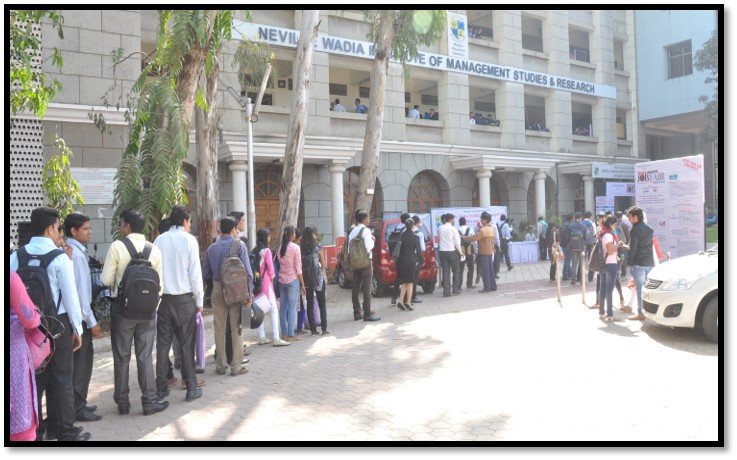
M.B.A. is a two year full-time postgraduate semesterized degree program. Neville Wadia Institute of Management Studies and Research has a total of 180 sanctioned seats from AICTE. The revised MBA Curriculum 2019 builds on the implementation of the Choice Based Credit System (CBCS) and Grading System initiated in the AY 2013. The curriculum takes the MBA programme to the next level in terms of implementing Outcome Based Education along with the Choice Based Credit System (CBCS) and Grading System.
Total fees for MBA course for academic year 2024-2025
Maharashtra State (MS)/ Outside Mah. State (OMS)/ Foreign Students – 1,47,000/-
( Note : As per the latest directives of Shikshan Shulka Samiti)
A candidate possessing 50% for open & 45% for reserved category marks at the Degree or Masters Degree examination in any faculty of any statutory University shall be eligible for admission to M.B.A. course. The candidate should also have qualified in the Common Entrance Test for M.B.A. conducted by Government of Maharashtra, DTE & Savitribai Phule Pune University.
Outcome Based Education (OBE) Approach: Outcomes are about performance, and this implies: a) There must be a performer – the student (learner), not only the teacher b) There must be something performable (thus demonstrable or assessable) to perform c) The focus is on the performance, not the activity or task to be performed.
The following specializations shall be offered :
Comprehensive Concurrent Evaluation Methods are used by Course Teachers. Course Teachers can opt for a combination of one of more CCE methods, some of which are:
Class Test, Open Book Test, Written Home Assignment, In-depth Viva-Voce, Case Study, Caselet, Situation Analysis, Presentations etc. to name some few.
Comprehensive Concurrent Evaluation (CCE) / Concurrent Internal Evaluation (CIE):
End Semester Evaluation (ESE):
Since the MBA program is a full time program, students are expected to attend college regularly as per SPPU, Pune and UGC New Delhi norms. Students may, if they wish, join a part time job without missing on the academics and co-curricular activities of the college.
Yes. College has a dedicated Training and Placement Officer (TPO). TPO will also take necessary efforts to provide Internship and placement for registered interested students.
No. After the submission of Admission Forms, Merit lists are prepared. Admission for MBA is based on Merit and conditional to eligibility approved by DTE, SPPU, Pune and other Government guidelines.
The fees of the MBA Program are as per the Shikshan Shulka Samiti guidelines. For further queries and clarifications, contact the administration office.
No. Add On courses are for Skill Enhancement and are recommended.
Yes. Each Assignment, presentation and Tutorials carry marks. There is a separate passing head in Tutorials and it is essential to pass.
Yes. Under the Choice Based Credit System (2019 Pattern), passing separately in each Head is compulsory. Heads imply Internal Examination, SIP Viva-voce, External Examination and Practical wherever applicable. Please refer to the university syllabus for detail information.
No. Once minor specialization is selected in third semester, it cannot be changed.